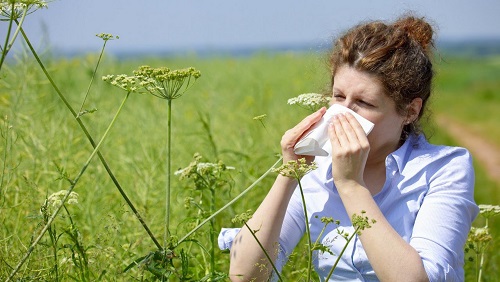Spring is the season of birth and growth. In traditional Chinese medicine understanding, spring belongs to the wood element and is dominated by wind. If we don’t adapt to the seasonal change, we may be susceptible to seasonal health problems characterised by an abrupt onset and rapidly developing symptoms.
 In response to the energetic nature of spring, we should sleep less than in winter, wake up earlier and talk a walk outside. This can help the mind and body get in gear for the day.
In response to the energetic nature of spring, we should sleep less than in winter, wake up earlier and talk a walk outside. This can help the mind and body get in gear for the day.
We should try to be content within ourselves and be more co-operative with other people. This will help the liver system work smoothly since spring corresponds to the liver. An unbalanced liver may lead to dizziness, hypertension, headache, and mental problems. Moreover, an overactive liver restricts spleen functioning, which can easily lead to digestive problems. We should always keep warm as the winter cold may still linger, especially at the start of the season.
It’s advisable to reduce the intake of sour flavours and increase sweet flavours as this facilitates the liver regulate chi throughout the body. Examples of recommended foods for spring include Onions, Leeks, Leaf Mustard, Chinese Yams, Wheat, Dates, Cilantro, Mushrooms, Spinach and Bamboo Shoots. Fresh green and leafy vegetables should also taken, along with Sprouts from seeds. In addition, eat only moderate amount of frozen and fried foods.
The winter cold induces people to stay indoors and eat too much, which can lead to a heat imbalance come spring. Symptoms include a dry throat, bad breath, constipation, a thick tongue coating and yellowish urine. Foods such as Bananas, Pears, Water Chestnuts, Sugar Cane, Celery and Cucumber help to clear the excessive heat.
According to TCM, prevalent infectious diseases in spring are due to exogenous wind, allowing pathogens to attack the body surface. Common colds and flu are usually initiated by a disturbance of lung functioning.
With the normal resistance, the body can easily fight off the pathogens, and will not cause serious problems. However, if you haven’t been taking care of your health, it may result in residual symptoms such as cough, excessive tiredness, sore throat and dizziness. Therefore, you should seek help as early as possible.
TCM physicians formulate treatments to suit your specific needs. Herbs in the prescriptions for spring related ailments may include Honeysuckle Flower and Bupleurum Root to relieve fever, Notopterygium Root and double-teeth pubescent Angelica Root to relieve general heaviness and soreness, Apricot Kernel and Stemona Root to arrest cough, Balloon-flower Root and Fritillary Bulb to dissolve phlegm, Blackberrylily Rhizome and Vietnamese Sophora Root to soothe throat soreness, and Dahurian Angelica Root and Magnolia Flower for decongestion. There are a variety of other herbs available to ensure full recovery from colds and flu.
Traditional tea shops offer fresh herbal brews to help protect against climatic influences, or to relieve aliments caused by stressful lifestyles.
